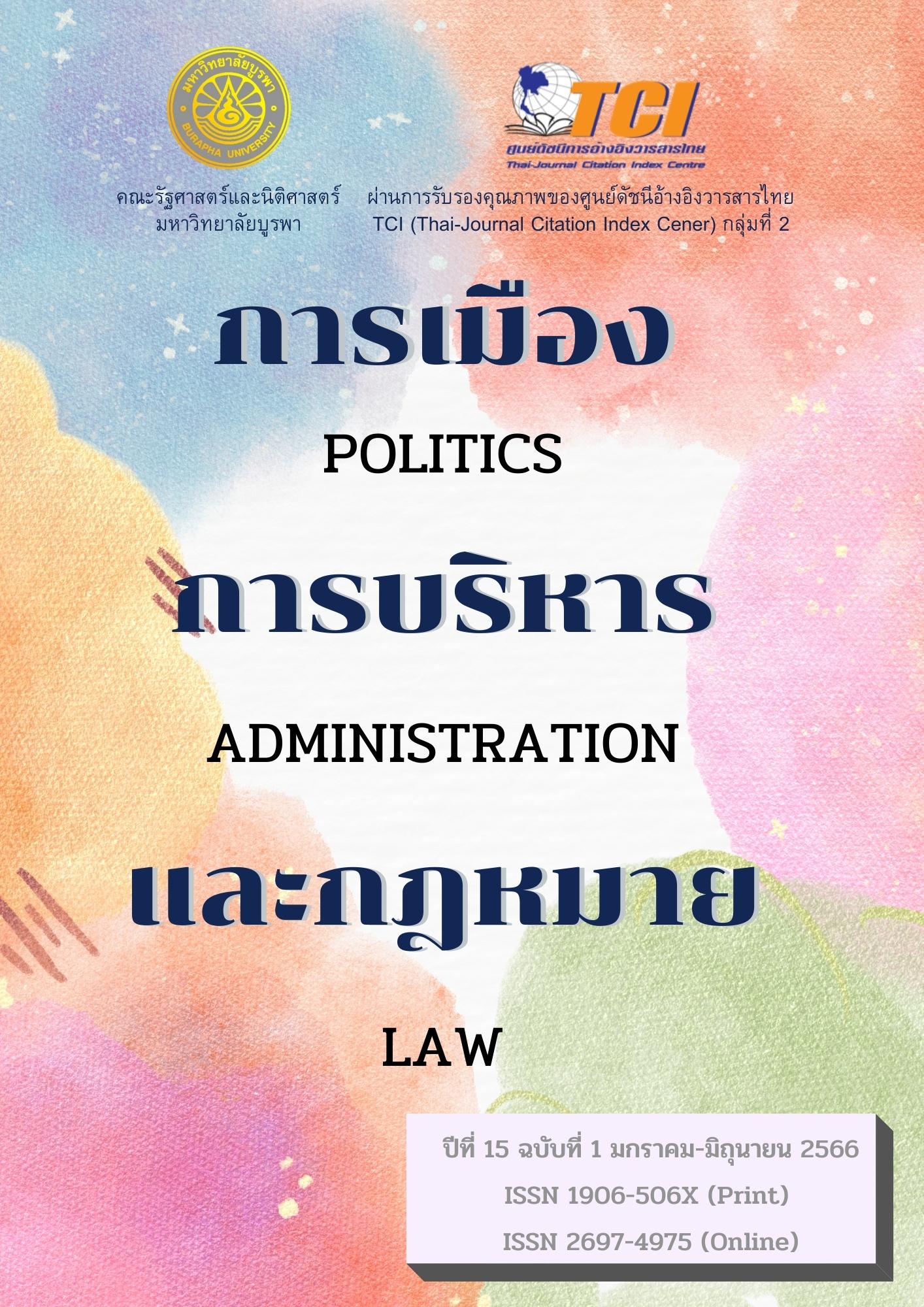ปัจจัยที่ส่งผลต่อการตัดสินคดีของผู้พิพากษาทางอาชญา: มุมมองของนักศึกษาในกรุงพนมเปญ
คำสำคัญ:
ระบบกฎหมาย, การรับรู้ส่วนตัวของผู้พิพากษา, ความคิดเห็นของประชาชน, อิทธิพลทางการเมือง, การทุจริตบทคัดย่อ
ผู้พิพากษาเป็นผู้มีบทบาทในระบบตุลาการในการสร้างความยุติธรรมและกฎหมายให้เกิดขึ้นในสังคม งานวิจัยนี้มีวัตถุประสงค์เพื่อศึกษามุมมองของนักศึกษาระดับปริญญาตรีในกรุงพนมเปญต่อปัจจัยที่มีผลต่อการตัดสินคดีอาญา มหาวิทยาลัยที่เข้าร่วม 3 แห่ง ได้แก่ Build Bright University, Royal University of Phnom Penh และ University of Cambodia กลุ่มที่ใช้ในการศึกษา คือ นักศึกษา จำนวน 391 คนวิธีการเชิงปริมาณถูกนำมาใช้สำหรับการรวบรวมข้อมูล ผู้วิจัยใช้สถิติเชิงพรรณนา และการถดถอยพหุคูณสำหรับการวิเคราะห์ข้อมูล ผลการวิจัยพบว่าความรู้ในเรื่องกฎหมายของผู้พิพากษา มีอิทธิพลมากที่สุดต่อการพิจารณาคดีอาญา ในขณะที่ความคิดเห็นของประชาชน การเมือง และการทุจริตไม่มีการเกี่ยวข้อง แสดงว่าความรู้ของผู้พิพากษามีความเชื่อถือได้
หลังจากศึกษาวิจัยเสร็จแล้ว ผู้วิจัยได้เสนอแนะโดยขึ้นกับผลการวิจัยว่าระบบกฎหมายอาจอัปเดตให้ทันต่อความต้องการทั่วไป ความรู้ระบบศาลและตุลาการควรรวมไว้ในระบบการศึกษาของนักศึกษาระดับปริญญาตรีและขั้นตอนความรู้พื้นฐาน เกี่ยวกับกระบวนการทางกฎหมายควรโฆษณาให้ประชาชนทั่วไปทราบมากขึ้น
เอกสารอ้างอิง
Amaral‐Garcia, S., Garoupa, N., & Grembi, V. (2009). Judicial independence and party politics in the Kelsenian constitutional courts: the
case of Portugal. Journal of Empirical Legal Studies, 6(2), 381-404.
Constitution. (2008). Cambodia's Constitution of 1993 with Amendments through 2008. Retrieved November 13, 2021, from
https://www.constituteproject.org/constitution/Cambodia_2008?lang=en
David Hutt. (2019). The injustice of Cambodia justice. The Cambodia Daily. Retrieved May 17, 2019, from
https://asiatimes.com/2019/05/the-injustice-of-cambodian-justice/
Edwards, H. T., & Livermore, M. A. (2008). Pitfalls of empirical studies that attempt to understand the factors affecting appellate
decisionmaking. Duke LJ, 58, 1895.
Gibson, J. L. (1981). Personality and elite political behavior: The influence of self esteem on judicial decision making. The Journal of
Politics, 43(1), 104-125.
Kheang Un. (2009). The judicial system and democratization in post-conflict Cambodia. Beyond democracy in Cambodia: Political
reconstruction in a post-conflict society, 70-100.
Kritzer, H. M. (1978). Political correlates of the behavior of federal district judges: A" best case" analysis. The Journal of Politics, 40(1),
-58.
Likert. (1932). A Technique for the Measurement of Attitudes. Archives of Psychology. (140), 1–55.
Linton Suzannah. (2006). Safeguarding the Independence and impartiality of the Cambodian extraordinary chambers. Journal of
International Criminal Justice, 4(2), 327-341.
Rose-Ackerman, S. (2007). Judicial independence and corruption. Transparency International, Global Corruption Report, 15-24.
Van Dijk Frans. (2021). Perceptions of Judicial Independence in European Countries. In Perceptions of the Independence of Judges in
Europe (pp. 29-51): Springer.
Van Koppen, P. J., & Kate, J. T. (1984). Individual differences in judicial behavior: Personal characteristics and private law decision-making.
Law and Society Review, 225-247.
West. (2018). The limits to judicial independence: Cambodia’s political culture and the civil law. . 5(26).
doi:10.1080/13510347.2018.1553956
Yamane, T. (1967). Statistics: An introductory analysis. Retrieved from London: John Weather Hill, Inc.
ดาวน์โหลด
เผยแพร่แล้ว
ฉบับ
ประเภทบทความ
สัญญาอนุญาต

อนุญาตภายใต้เงื่อนไข Creative Commons Attribution-NonCommercial-NoDerivatives 4.0 International License.






